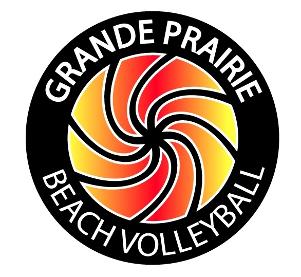Rules:
Grande Prairie Beach Volleyball League rules are based on Volleyball Canada rules which are based on FIVB rules. FIVB rules are international rules applying to the FIVB pro beach tour and the Olympics. Some of our rules have been created to work within our time constraints or to compensate for the fact that our leagues and tournaments are not refereed. Where there is a discrepancy between the three sets of rules, Grande Prairie Beach Volleyball League rules will be deemed correct. You can buy a copy of Volleyball Canada Rules at www.volleyball.ca. You can download a free copy of FIVB rules at www.fivb.ch/EN/BeachVolleyball/Rules/rules.htm.
Some minor rule differences between indoor & outdoor volleyball include:
- If a blocking player touches the ball, but it continues onto his side of the net, the block counts as the first contact (except in Co-Ed 4's)
- Open-hand dinks (tips), where a player uses the fingertips to redirect the ball into the opponent's court, are illegal
- It is legal to cross under the net as long as doing so does not interfere with the opponents' attempt to play the ball (there is no center line)
- Players are not required to rotate positions but they must alternate service
- There is no 3-metre (attack) line (except in Reverse Co-Ed 2s)
- There are no substitutions (and no libero) in any one set/game
- When receiving or attacking, overhand passes (sets) must be executed very cleanly and square to the shoulders. Spin on the ball should be very minimal.
- Free balls cannot be overhand set
- Serves cannot be received with an overhand set
- Hard driven balls (attack) can be overhead set
Hand Signals
One of the facets of beach volleyball is the use of hand signals by players to indicate to their partners what sort of play they intend to make. These signals are made behind the back, to avoid the opposition seeing the signals. Most commonly, the signals are given with both hands by the serving player's partner before the serve, with each hand referring to the type of block that should be put up against an attack from the corresponding side of the court. If the server is a stronger blocker, he or she may run up to the net to block after serving. Otherwise, the signaler will perform the block.
Signals may also be given during a rally, while the opposing team is preparing their attack. This is less common, however, and it is routine for players to just block "ball" after the first sequence or maintain the call throughout an entire rally.
Additionally, the signaler may wiggle or "flash" the fingers on one of the signaling hands indicates that they want the server to serve the player on that side of the court
- Closed fist - No block should be attempted for the opponent on that side of the court
- One finger - The blocker should attempt to block an opponent's spike down the line, or straight ahead of the hitter
- Two fingers - The blocker should attempt to block an opponent's spike into the angle, or diagonally across the court
- Open hand - The blocker should block "ball," deciding where to set the block based upon the set and on the opponent's approach and arm-swing
Note: It is somewhat common, especially at less competitive levels of play, for a signaler to show one finger on one side and two fingers on the other, in order to allow the non-blocking player to be able to focus their defensive attention on one half of the court.
